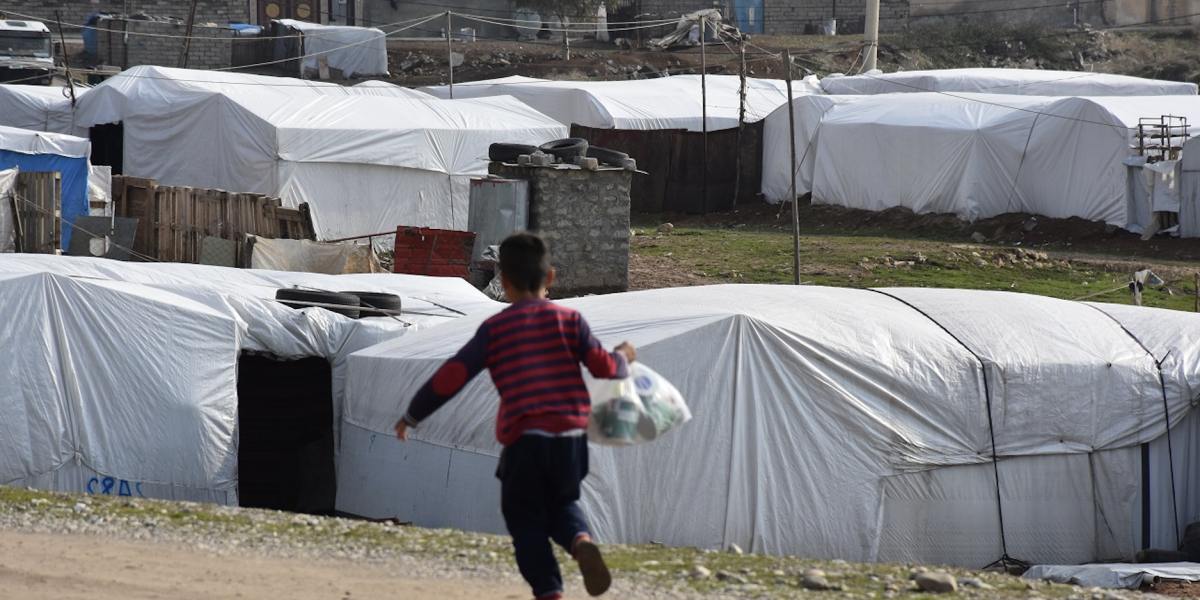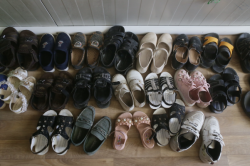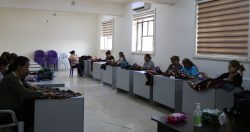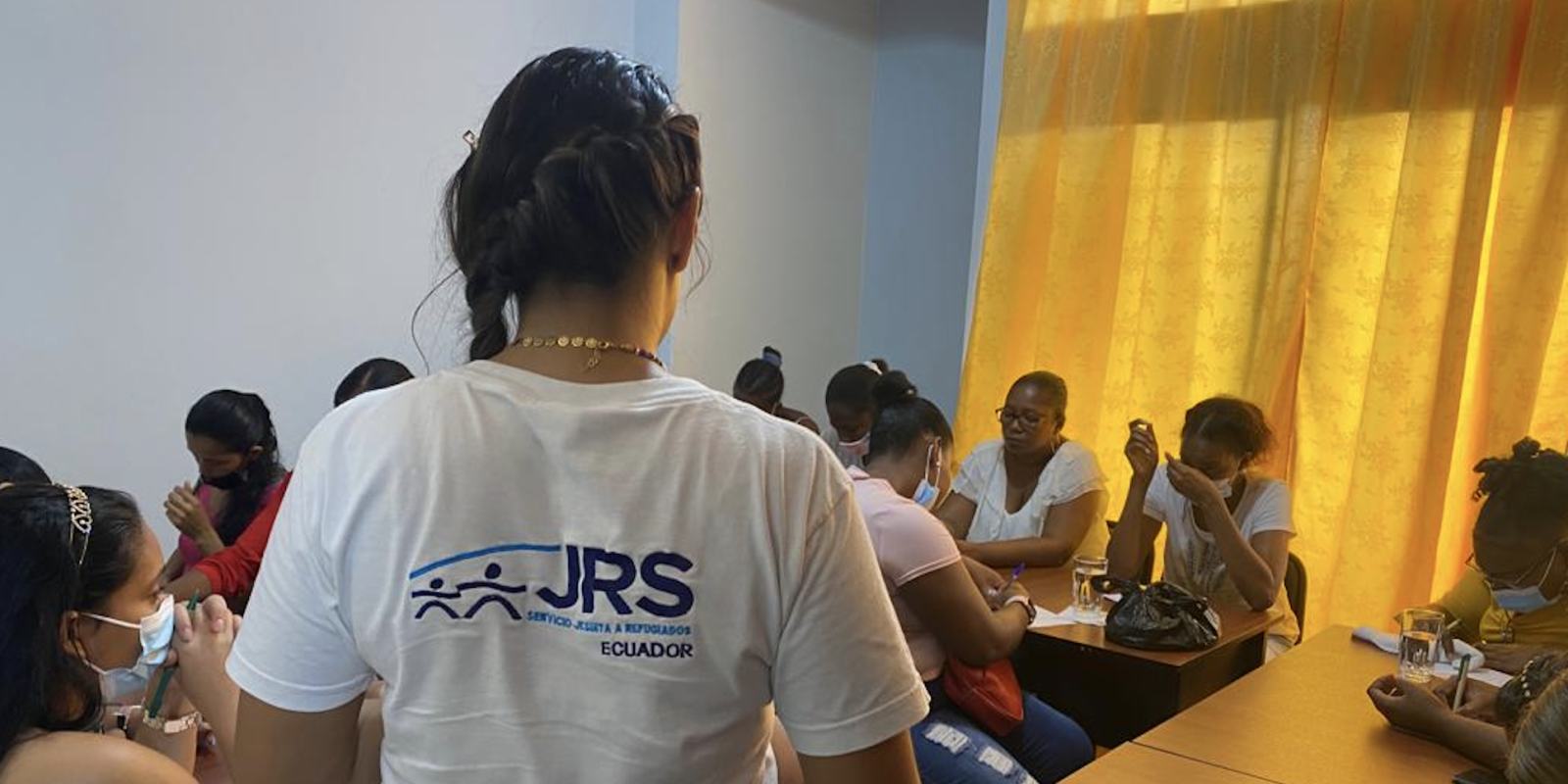JRS Iraq & State PRM: Empowerment through Mental Health and Psychosocial Support
18 January 2024|Chloe Gunther

*CW: Article discusses consideration of self-harm
In partnership with the U.S. Department of State Bureau of Population, Refugees and Migration (State PRM), Jesuit Refugee Service accompanies refugees and internally displaced people (IDPs) in Iraq through a comprehensive array of mental health and psychosocial support (MHPSS) programs. “We try to reduce the need for negative coping mechanisms as much as possible,” said Cristina Alaniz, Program Manager who oversees the JRS Iraq portfolio at JRS/USA.
JRS Iraq primarily works with IDP’s and recent returnees who are a part of the Yazidi community living in settlements after the war with ISIS. In JRS Iraq’s 2023 Annual Report, they documented that the most reported reasons the Yazidi community is fearful of returning is because of potentially traumatic experiences related to their place of origin.
The network of MHPSS programs offered by JRS consists of psychological first aid, community-based psychosocial support activities, individual psychological consultations, psychiatric support, medical referrals, and the ISIS survivor rehabilitation and reintegration program.
JRS Iraq also provides material assistance to empower the community. Children can receive transportation subsidies to go to school and families are provided emergency materials like food baskets, winter items, and infant formula.
Through family home visits, JRS can assess and understand what the individual and community needs of over 4,000 families are. Family visits are the first door through which JRS identifies groups and individuals who need specific MPHSS services. After these initial introductions, referrals are made on a case-by-case basis to best meet the community’s needs.

One young man was referred to the JRS MHPSS team after he returned to Qaraqosh. He was living with depression and anxiety which made his sleep, focus, appetite, and overall mental health increasingly worse.
He began participating in JRS’s MHPSS programs in 2021. The program included sessions with a clinical psychologist who practiced cognitive behavioral therapy (CBT) with the young man. His mental health started to improve. He reported performing better at work, creating plans for his future, and gained the confidence to build relationships with people and establish a social community.
After such success, he ended his formal therapy sessions, confident in the tools and coping mechanisms he learned. Today, he is getting more involved in his community and pursuing his life-long dream of completing university studies. He credits his psychologist and the JRS Iraq team for helping him achieve his goals.
To respond to the persistent issue of gender-based inequality and violence, JRS Iraq also organizes women’s support groups to strengthen community bonds and promote empowerment amongst the women in Qaraqosh. The groups meet twice a week for leisure and relaxation activities such as baking, knitting, and mindfulness exercises as well as skill-building activities like self-care, parenting sessions, and nutrition classes.
The program seeks to empower the role of women in bringing about positive change in head of household positions and in the community. Women are also equipped with dignity kits to avert period-poverty.
One woman and her family reported remarkable improvements after participating JRS’s MHPSS programs. She experienced psychological distress after witnessing extreme conflict and violence in her hometown. As time progressed, she struggled to cope with her mental health on her own. She withdrew from her community and considered self-harm.

JRS met her when they visited her home and family. The family visit team referred her as an emergency case. She was provided psychological first aid and was linked with positive coping mechanisms and tools to help care for her mental health.
The mental health of her and her family improved significantly. She began studying a new language and planning for her future. In speaking with the JRS Iraq team she said, “I am very grateful to all of the JRS staff because you saved my life.”
JRS Iraq has also successfully established and expanded the ISIS survivor rehabilitation and reintegration program in Sharya, Iraq. The MHPSS team works with over 50 ISIS survivors, most of which are children offering individual counseling, social work, and group therapy sessions that include fun activities where the children can build social skills and develop emotional intelligence through play and art
With support from State PRM and other donors, JRS will continue to meet the mental health needs of the Yazidi community and accompany them as they make the brave return journey to their homes in Iraq.



